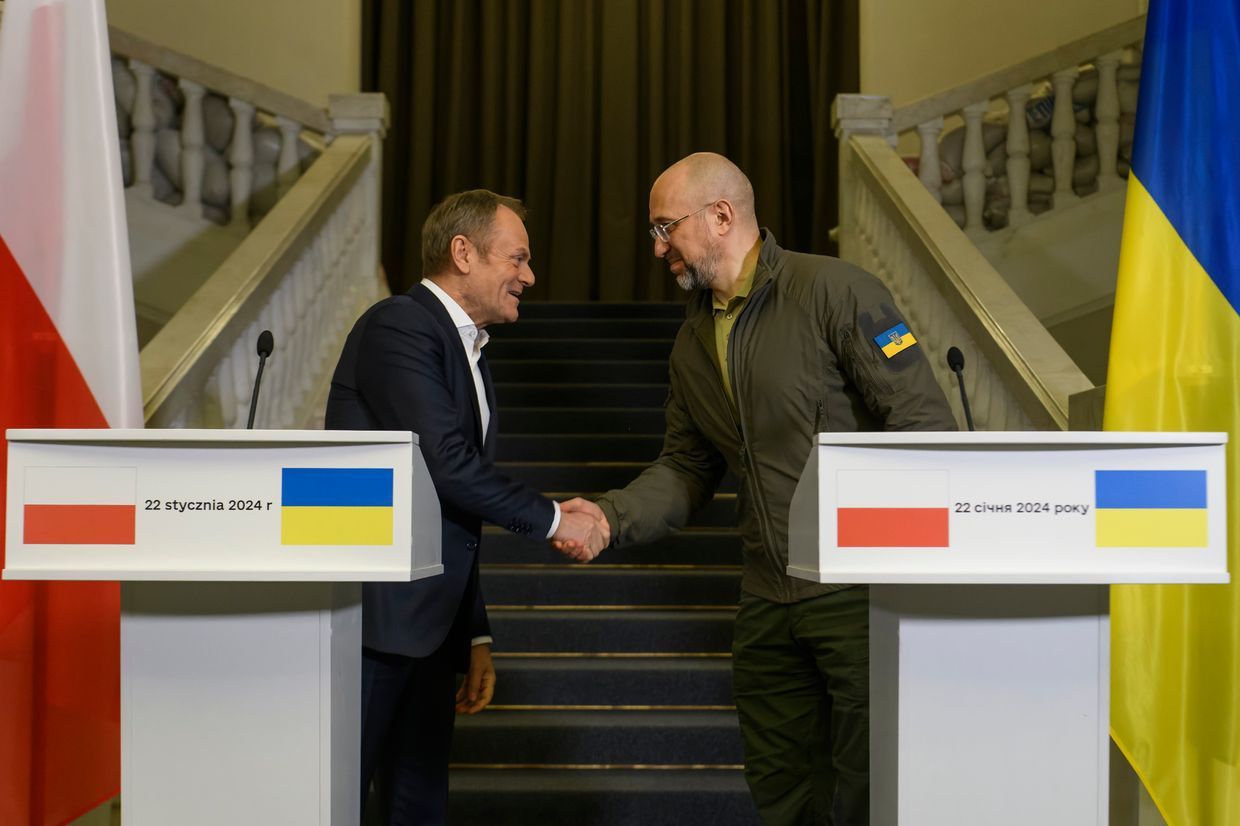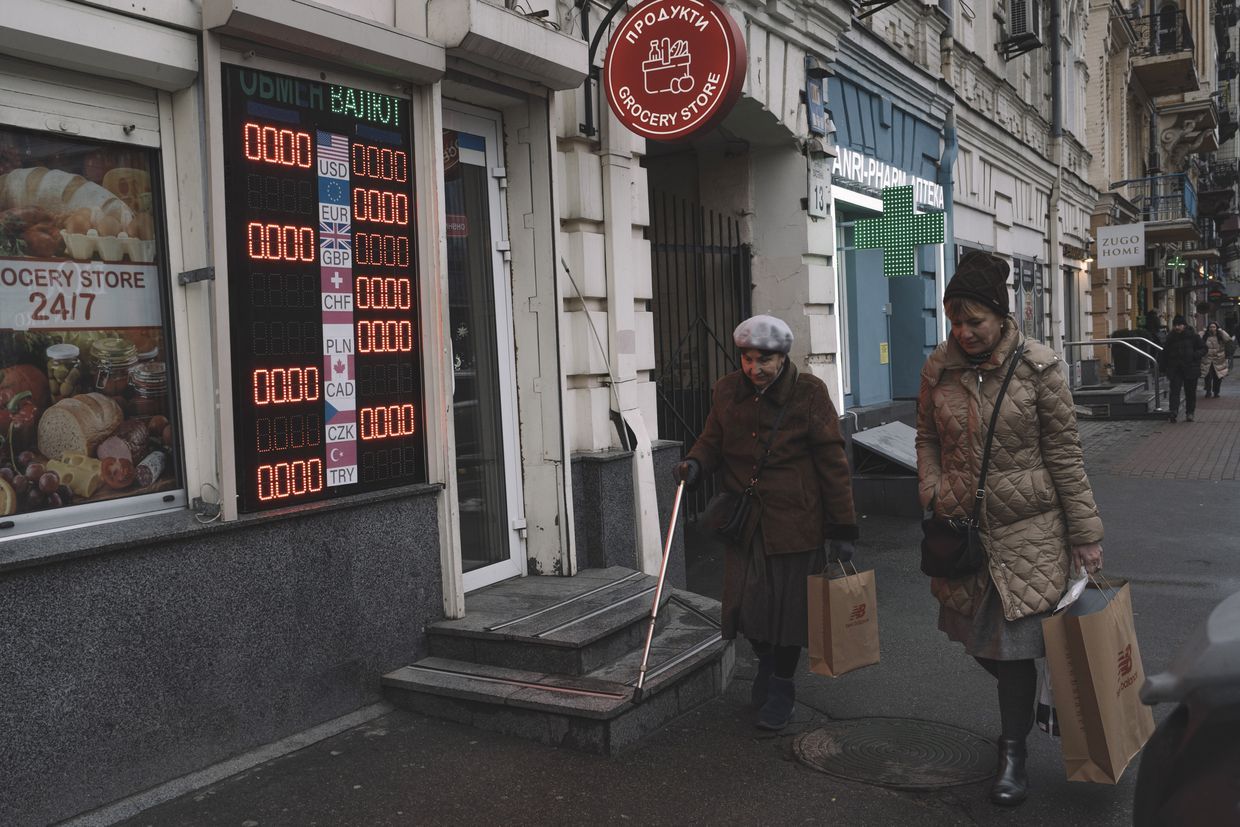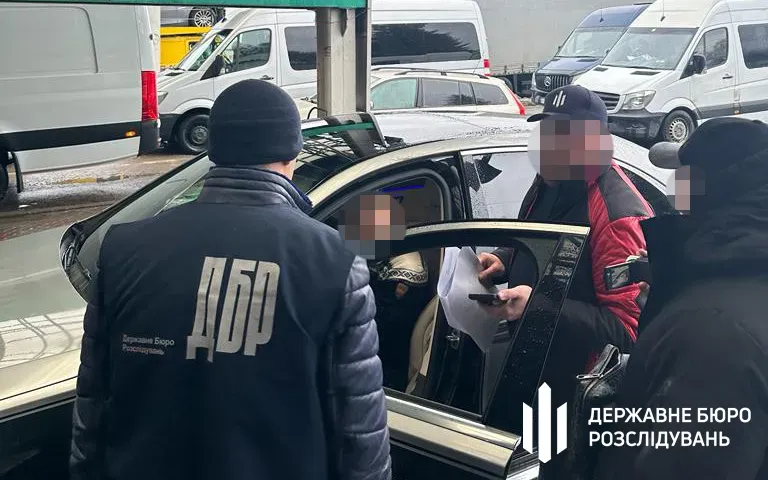The following is the Jan. 23, 2024 edition of our Ukraine Business Roundup weekly newsletter. To get the biggest news in business and tech from Ukraine directly in your inbox, subscribe here.
Dark days
Is the era of Viktor Yanukovych — Ukraine’s infamously corrupt former president ousted following the culmination of the EuroMaidan Revolution in 2014 — making an ugly return?
Hopefully not, but that’s what some in the business community in Ukraine are saying after recent news made headlines that investment banker and head of Kyiv-based Concorde Capital Ihor Mazepa was detained at the border with Poland on Jan. 18 while allegedly heading to the World Economic Forum in Davos, Switzerland.
Mazepa, a vocal critic of pressure on businesses by law enforcement, was detained in connection with a 2014 case that accused him of illegally seizing state land in Kyiv Oblast in 2013. Mazepa and his press service have denied the accusations and called his detention an unfounded attack against his business.
Suspicions that his arrest may be linked to his stance only grew when yesterday, news broke that Mazepa’s family’s home in Chernihiv Oblast had burned down overnight on Jan. 22. In response to the Kyiv Independent over whether Mazepa's home had been targeted, Concorde Capital spokesperson Anna Diakonova said the house had been there "for 10 years and everything was fine with all systems."
We don’t know who or what is behind Mazepa’s arrest or the fire, but lawmaker Yaroslav Zhelezniak from the Holos Party says it’s quite clear that Mazepa’s arrest is linked to his public stance. “Mazepa was one of the first businessmen who openly said that the pressure on business on behalf of different investigative bodies is too high,” Zhelezniak said.
Zhelezniak also said he believes the pressure on businesses is coming from two deputy heads of President Volodymyr Zelensky’s office: Rostyslav Shurma, who is in charge of economic matters, and Oleh Tatarov, who deals with law enforcement. In other words, straight from the top.
On the bright side, business leaders met with government representatives, including the Parliamentary Chairman Ruslan Stefanchuk, Economy Minister Yuliia Svyrydenko, and Digital Transformation Minister Mykhailo Fedorov on Jan. 22 to express their concern over Mazepa’s arrest and pressure on businesses.
“We were listened to carefully, and I think they heard us!” the founder of the investment holding EFI Group, Ihor Liski, said on Facebook following the meeting.
Read more about Mazepa’s arrest and what it means for Ukraine here.

Davos digest
The World Economic Forum concluded last week in Davos, Switzerland. On the sidelines of the forum, officials and business leaders met at the Ukraine House Davos to discuss bringing both peace and investment to Ukraine.
One panel, organized by Ukraine House Davos and sponsored by insurance broker Marsh McLennan, brought together financial services leaders and a representative of the Ukrainian government to speak about what can be done to unlock more investment to Ukraine, now.
That government representative was Rostyslav Shurma, deputy head of the office of the President of Ukraine (yes, the one mentioned above in connection with pressure on business). Insurance Business News reported from the event, commenting that Shurma went to lengths to express his despair at the lack of investment currently coming to Ukraine and the reasons why.
“We have a lot of regulatory problems. We have some problems with the rule of law, as in any other country, and we need to fix them. But nothing will change until we fix the military situation,” Shurma said.
Indeed, the best way to bring investment to Ukraine would be to help the country win, and end, the war. But it isn’t just the lack of war insurance or the threat of Russian missiles that deter foreign investors.
What Shurma didn’t mention are two very specific regulatory hurdles to increased investment in Ukraine that I thought I’d add to the conversation.
One, foreign investors don’t receive refunds on the value-added tax when they invest in Ukraine. Investors seem to understand this won’t change while the war is going on, but say it is a real hindrance to foreigners coming to Ukraine as they know they'll have to wait for their investment to pan out to see that money in their returns.
Second, Ukraine’s 5-7-9% loan program developed to create better access to bank lending at better rates is off-limits to Ukrainian companies with foreign partners. Investors with whom I’ve spoken said it feels like a penalty to foreign companies who want to forge partnerships in Ukraine.
If we take seriously Shurma’s role in making life hard for businesses, maybe he should spend more time on improving the regulatory framework for investment and less on taking out perceived enemies.

Border to be unblocked?
Polish truckers ended on Jan. 16 their blockade of two of the three border crossings with Ukraine that have been blocked by the truckers’ protests since November last year after coming to an agreement with Warsaw.
There’s no huge reason to celebrate, yet. Talks continue between the Polish truckers and Warsaw, the outcome of which will determine whether the protests will resume on March 1.
In the meantime, Polish Prime Minister Donald Tusk visited Kyiv on Jan. 22, where he pledged to find a solution to the months-long border blockades at four Ukraine-Poland checkpoints that have led to extremely lengthy wait times for truckers and hurt Ukraine’s economy.
During the visit, Tusk met with Ukrainian Prime Minister Denys Shmyhal and discussed the creation of four more new crossing points in addition to the current 14. The two sides talked about joint border control, the exchange of databases, and the continued modernization of checkpoints.
In addition, Shmyhal offered Poland to consider participation in the construction of the Krakivets-Lviv-Brody-Rivne highway, adding that Polish companies could join the project on concessionary terms.
Meanwhile, Romanian farmers, who ended a week-long border blockade on Jan. 20, are threatening to reignite protests unless Bucharest demands an EU decision be made to safeguard Romanian farmers from the influx of Ukrainian agricultural products.
This section was brought to you by Kyiv Independent business reporter Dominic Culverwell.

Can Ukraine survive without foreign help?
Spending all of its revenue on the military, the Ukrainian government relies on international aid from its Western partners.
The budget deficit in 2024 is expected to reach $44 billion, which Kyiv is hoping to cover with both domestic borrowing and financial aid from abroad.
The Finance Ministry says the country will need around $37 billion in external financing next year, a slight decrease from the previously expected $41 billion. The total has been trending downward as the ministry ostensibly looks to cut costs where it can.
Ukraine’s needs will likely look closer to somewhere between $6-6.5 billion per month in 2024 to cover expenses, according to a former Ukrainian lawmaker with knowledge of current budgeting issues who asked not to be named due to the sensitivity around this issue.
With pledged help from some partners, including the U.K., Japan, and the IMF at around $10 billion, the country still would face a hole of some $32 billion. The timing of when financing is disbursed will also determine if Ukraine can walk the tightrope.
The government is mulling various options, including the sale of domestic bonds, tax collection, or printing money, but these solutions can only cover the first two months of the year and risk hurting the economy in the long term, Kyiv Independent reporter Alexander Query writes in his Read about it more latest.
Despite a few backup plans, there’s no miracle solution to keep Ukraine’s economy going without external help, Sergey Fursa, an analyst at investment company Dragon Capital.
“If help doesn’t come, there are no mechanisms to avoid the economy’s collapse,” Fursa said.
Read about it more here.

Talking business with Uklon
In our latest interview for our Talking Business in Ukraine series, we spoke to Ukraine’s most popular ride-hailing service Uklon’s co-owner Sergii Smus. Despite the presence of American Uber and Estonian Bolt in the Ukrainian market, Uklon is the leader in the ride-hailing industry, bringing together tens of thousands of drivers who collectively complete over four million trips each month.
The Kyiv Independent: Regarding percentages, how much revenue in Ukraine have you recovered compared to pre-war figures?
Sergii Smus: As of December 2023, we have returned to pre-war revenue figures in Ukraine. In some cities in western Ukraine, we even showed growth. Many attribute this to people's migration. But I don’t think that’s the reason. The increase in western Ukraine is associated with Uklon reinvesting in these regions.
Before the full-scale invasion, western Ukraine was less developed than other regions of Ukraine. We invested more in large cities than in smaller ones. Now, we have shifted the focus to supporting western Ukraine.
The Kyiv Independent: How difficult is attracting investments to develop an IT company now?
Sergii Smus: Our core, Uklon, is currently in Ukraine. For many investors, this appears risky, or they want to enter at a very low valuation, splitting the value of our company by five. But I can't say that we are trapped. We are developing as much as possible with our funds in other countries and believe in Ukraine's victory.
The Kyiv Independent: Some of your employees and partner drivers are now in the Armed Forces. Do you plan to implement programs for veterans' integration?
Sergii Smus: In our IT company, more than 10 people are in the Armed Forces, and each receives the same salary as before the war. Each of them also has a quarterly budget we provide for purchasing necessary items, and the team organizes targeted collections. Speaking of veterans, we have a separate program with a veterans' fund to help and reintegrate people returning, assisting them in becoming Uklon drivers and finding other employment.
Read the full interview here.
What else is happening
Court prolongs oligarch Kolomoisky's detention until March. Ukrainian oligarch Ihor Kolomoisky will remain in custody until March 2 with a bail set at Hr 2.65 billion ($71 million), Suspilne reported on Jan. 22, citing the Shevchenkivskyi District court’s decision. Kolomoisky was charged with fraud and laundering over Hr 500 million ($13.3 million) between 2013 and 2020, the Security Service of Ukraine (SBU) reported on Sept. 2, 2023. During the hearing on Jan. 22, Kolomoisky said that he needed a medical examination as his health conditions had gotten worse. His lawyers insisted on allowing Kolomoisky to move from custody to house arrest in Dnipropetrovsk Oblast. The court refused to release the oligarch on bail, extending his detention as the pre-trial investigation continues.
Euractiv: Bulgaria urges tariffs and quotas on Ukrainian grain imports to EU. The Bulgarian government urged the European Commission to introduce tariffs and quotas on Ukrainian imports to the EU to satisfy Bulgarian grain, oil, and livestock producers, Euractiv reported on Jan. 23. The Bulgarian Agriculture Ministry insists that duties must be paid for Ukrainian products if quota volumes of duty-free imports are exceeded, Euractiv wrote. The volumes must be "in line with market logic and processing capacities" and should provide "more clarity and security for both producers and processors," the ministry said. Otherwise, the current situation may lead to a decrease in local production, which "in the long term may disrupt the country’s food security."
Massive cyberattack targets Ukraine’s largest online bank. Hackers targeted Monobank, Ukraine's largest mobile-only bank, with waves of denial of service (DDoS) attacks on Jan. 21, the company's co-founder and CEO Oleg Gorokhovskyi reported. DDoS attacks direct excessive amounts of traffic at a website to overload its servers, often causing disruptions to service. Gorokhovskyi said Monobank was targeted with 580 million service requests in one attack. Meanwhile, VEON, the Dutch telecommunications operator and parent company of the Ukrainian mobile operator Kyivstar, reported a Hr 3.6 billion ($95 million) revenue loss due to the major cyberattack conducted by a Russian hacker group in December.
Borrell: EU foreign ministers agree on plan to transfer profits from frozen Russian assets to Ukraine. European Union foreign ministers have reached a political agreement to finalize the work on transferring revenues from frozen Russian assets to Ukraine based on the proposal suggested in December, EU's top diplomat Josep Borrell said on Jan. 22. "I'm almost sure this will be finalized soon… Discussions will continue on the level of ambassadors, but I see that the agreement is coming," Borrell told reporters following a meeting of the EU foreign ministers in Brussels. He added that the EU aims to officially make the decision before the next meeting of the EU Foreign Affairs Council, scheduled for Feb. 19.
Prosecutor General: Ukrainian law enforcement has seized over 260 Russia-linked properties since February 2022. Ukrainian law enforcement has seized over 260 properties in Ukraine directly and indirectly linked to Russians since the start of the full-scale invasion, Prosecutor General Andrii Kostin said at a press conference on Jan. 22. Among the seized properties are enterprises, factories, ports, offices, and residential buildings, according to Kostin. Ukrainian law enforcement agencies have been investigating 180 criminal cases involving assets directly or indirectly owned by Russian citizens since February last year. As part of the investigations, corporate rights of 91 Ukrainian business entities beneficially owned by Russian nationals or Russian state companies have been seized and handed over to Ukraine's Agency for Investigation and Management of Assets, the prosecutor general said. They are worth over Hr 22 billion (around $587 million).













